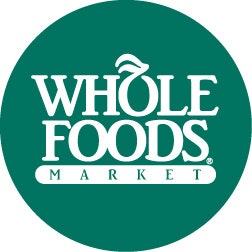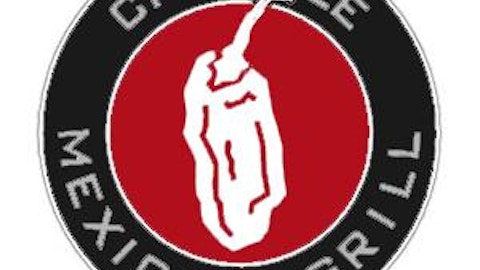With healthcare costs on the rise, people demand healthier choices from their restaurants and grocery stores. Companies that cater to this rising trend have made their shareholders rich. The three companies below sell healthy food to a public who wants to live longer and curb ever rising healthcare costs.
The growing healthy grocery store
Founded in 1980, grocery store chain Whole Foods Market, Inc. (NASDAQ:WFM) sells natural and organic food. Whole Foods Market believes in mutually beneficial and “conscious” capitalism. Whole Foods Market, Inc. (NASDAQ:WFM) views everyone involved with its business as “stakeholders” meaning that everyone involved should come away rewarded in some way. Moreover, the company holds its vendors to the highest quality standards in order to deliver the best products to its customers.
Whole Foods Market, Inc. (NASDAQ:WFM) provides innovative ways to save on employee healthcare costs through incentive programs such as the Total Health Immersion Program where employees get extra discounts if they meet certain health criteria. According to the 2012 annual report, Whole Foods Market saw year over year decrease in medical claims and hospital stays.
The company fundamentals demonstrate the fact that consumers respond well to the company’s products. In 2012, revenue and free cash flow increased a whopping 16% and 19% respectively. Cash and investments represent 38% of its stockholder’s equity. The company possesses little long-term debt. Its return on equity calculates to 12%.
Last year the company prudently paid out 20% of its free cash flow in dividends. Currently the company pays $0.40 per share per year in dividends yielding 0.8%, which isn’t bad considering Whole Foods Market, Inc. (NASDAQ:WFM) still resides in a growth phase.
Whole Foods Market, Inc. (NASDAQ:WFM) still remains a relatively small grocery store chain. Last year the company built 24 stores ending FY 2012 with 335 stores, and it is on track to build 29 stores in FY 2013. Increasing healthcare costs as well as the desire to live longer will serve as incentives for the consumer to shop at Whole Foods Market.
Yogurt anyone?
French food conglomerate Danone SA (ADR) (OTCMKTS:DANOY) makes, sells, and distribute healthy foods such as Dannon yogurt, bottled water, and baby food throughout the world.
Looking at a breakdown by products category, Danone SA (ADR) (OTCMKTS:DANOY) showed the highest sales gains in baby nutrition, waters, and medical nutrition growing 12%, 10%, and 6% respectively. Geographically, the company experienced the highest level of growth in Asia, growing sales 17% in that region.
Overall, Danone SA (ADR) (OTCMKTS:DANOY) grew its revenue and free cash flow 8% and 11% respectively in 2012. Its long-term debt to equity ratio calculates at 52%. Cash and investments represent 25% of its stockholder’s equity. Its return on equity clocks in at 14%.
The emerging world harbors a need for nutrition. The developed world needs healthier choices to cut down on obesity and on subsequent healthcare costs. Danone SA (ADR) (OTCMKTS:DANOY) can help fulfill this global need.
Organic everything
Organic food company Annies Inc (NYSE:BNNY)’smakes organic and natural versions of everything from pizza to mac & cheese, crackers and fruit snacks. The company went public in the early part of 2012.
In 2012, Annie’s revenue increased 20%. Its free cash flow swung from a negative $2 million to a positive $6 million. Annies Inc (NYSE:BNNY)’s possesses no long term debt. Its return on equity clocks in at 18%.
However, declining gross and operating margins should concern any prospective investor. In its most recent quarter, Annie’s (NYSE:BNNY) gross and operating margins declined 75 basis points and 95 basis points respectively.
In its most recent quarter, Annies Inc (NYSE:BNNY)’s gave guidance of 18% to 20% sales growth for FY 2014 and adjusted EPS growth of 21% to 26%. This gives indication of management’s belief that consumer preference for natural and organic foods will continue into next year.
Conclusion
On the whole, these companies cater to the growing natural and organic food markets. Growing pressures on the consumer from rising healthcare costs and the desire to live longer should serve as catalysts for fundamental growth. These companies deserve a place on your Motley Fool Watch List and warrant further research.
Speaking of making investors rich…It’s hard to believe that a grocery store could book investors more than 30 times their initial investment, but that’s just what Whole Foods has done for those who saw the organic trend coming some 20 years ago. However, it may not be too late to participate in the long-term growth of this organic foods powerhouse.
William Bias has no position in any stocks mentioned. The Motley Fool recommends Whole Foods Market. The Motley Fool owns shares of Whole Foods Market.
The article 3 Companies That Are Good for Your Health originally appeared on Fool.com.
Copyright © 1995 – 2013 The Motley Fool, LLC. All rights reserved. The Motley Fool has a disclosure policy.






